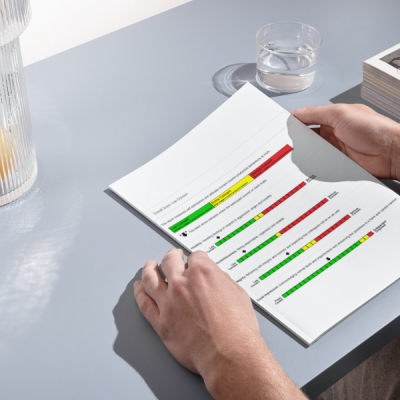5 reasons to use behavioural assessments for frontline care staff
8 Mar 2017Traditionally the process of psychometric assessment for recruitment and development purposes has been reserved for senior management, or non-care employees within the Corporate sector. These assessments provide a wealth of information, are often time consuming and come with a hefty price tag.
There has been far less up-take of assessments for frontline roles. The reasons being that many of the tools available were not Care sector specific, were seen as costly and not suitable for volume recruitment. In addition, because of the range of education and literacy levels within the applicant pool, psychometric testing was often seen as not being applicable for frontline staff.
As with everything, things change. The care sector is evolving and a growing number of providers want, and need, to know more about their job applicants than work experience and education alone. The focus is shifting to soft skills, such as possessing the right personal values, work behaviours and personality. These insights combined with the traditional recruitment methods, give a more rounded picture before any employment decision is made.
Care Advantage is a proven, short and affordable online behavioural screening tool. With built-in benchmarks for care roles it compares your applicants against good performers in the role – be it a home care or residential setting. We have already discussed 10 reasons to use values and behavioural assessment in general. Now we’d like to discuss 5 reasons why it has become a must to use behavioural screening for frontline care roles:
(1) Better ways to look at new entrants to the Sector
Staff shortages in the care sector is only growing and the need to fill vacancies has extended recruitment efforts to well outside of the pool of experienced care workers. Using behavioural screening will help you find those applicants who have the right personality and work attitude for a frontline care role, but not yet the relevant work experience. A new job can be learned by training but changing a person’s personality or work behaviour is far more difficult! Start your search by comparing your applicants to proven performers in the role.
(2) Risk Management- Staff turnover & Duty of Care
Using behavioural screening helps to identify risks that otherwise may have been kept out of sight or are hard to discover during interview. Care Advantage’s job fit and attitude reports highlight areas of concern in behaviour or personality and provide targeted interview questions to explore these concerns in more detail. This gives you more insight to make rigorous and informed recruitment decisions.
A current user of behavioural screening explains it well: “If we say that we have a rigorous recruitment process in place and don’t use behavioural screening, then our system simply cannot be described as rigorous. I do not want to be the Director standing up in front of a court trying to defend our recruitment process and having no empirical scientific measurement of an applicant in place. I believe that it’s completely inadequate to simply say: we did a Data Base Search, took up references and had a structured face to face interview for a role as important as being a lone worker looking after lone vulnerable adults in their own homes…”
(3) Give Hiring managers the insights of a consistent and proven process
Many care providers are moving to centralised managed HR models providing the pre-selection of applicants where the Hiring Managers conduct the interviews. With staff shortages also in HR and the logistical challenges of a multi-site operation, HR is just not able to attend every interview. By using behavioural screening HR can now provide the site manager not only with the names and resumes of the shortlisted applicants but also with a personality and attitude report including job specific interview questions. A behavioural screening process provides cost effective tools and guidance for a more successful recruitment process.
(4) Reduce the time and cost spent on applicants you don’t hire
Recruitment takes time. Many hiring managers complain about the stacks of resumes that come in for certain roles. Using behavioural screening at the top of the selection funnel means that you let your applicants complete a quick online assessment as part of their applicant process. The results are used to sort the applicants by best job fit and THEN you start reading their resumes in that order. Any gems are more easily identified. Time is saved!
(5) Reduce no-shows at interview
How often have you prepared for a job interview only for the applicant to not show up? What a wasted time for yourself and the other people on the interview panel. Using behavioural screening adds a simple layer to weed out those applicants who weren’t really interested in the job in the first place.
Learn more about behavioural screening with Care Advantage!
Read the Case study where we explore if Care Advantage can predict performance of new care workers and if Care Advantage can correctly identify potential misconduct risk in applicants.
Ready to see for yourself? Try Care Advantage on your next frontline vacancy – assess 5 applicants at no cost – it will take each applicant 12 minutes to complete the assessment and provide real insights into your hiring decision. We will manage everything, all you have to do is send the link to your applicants.






